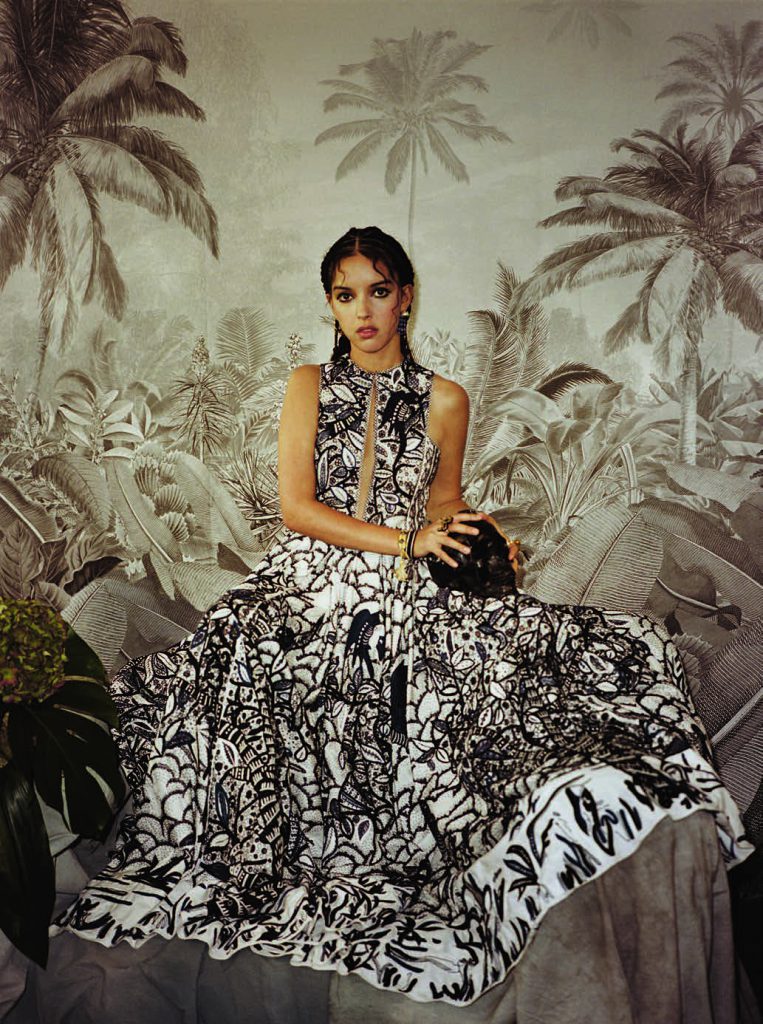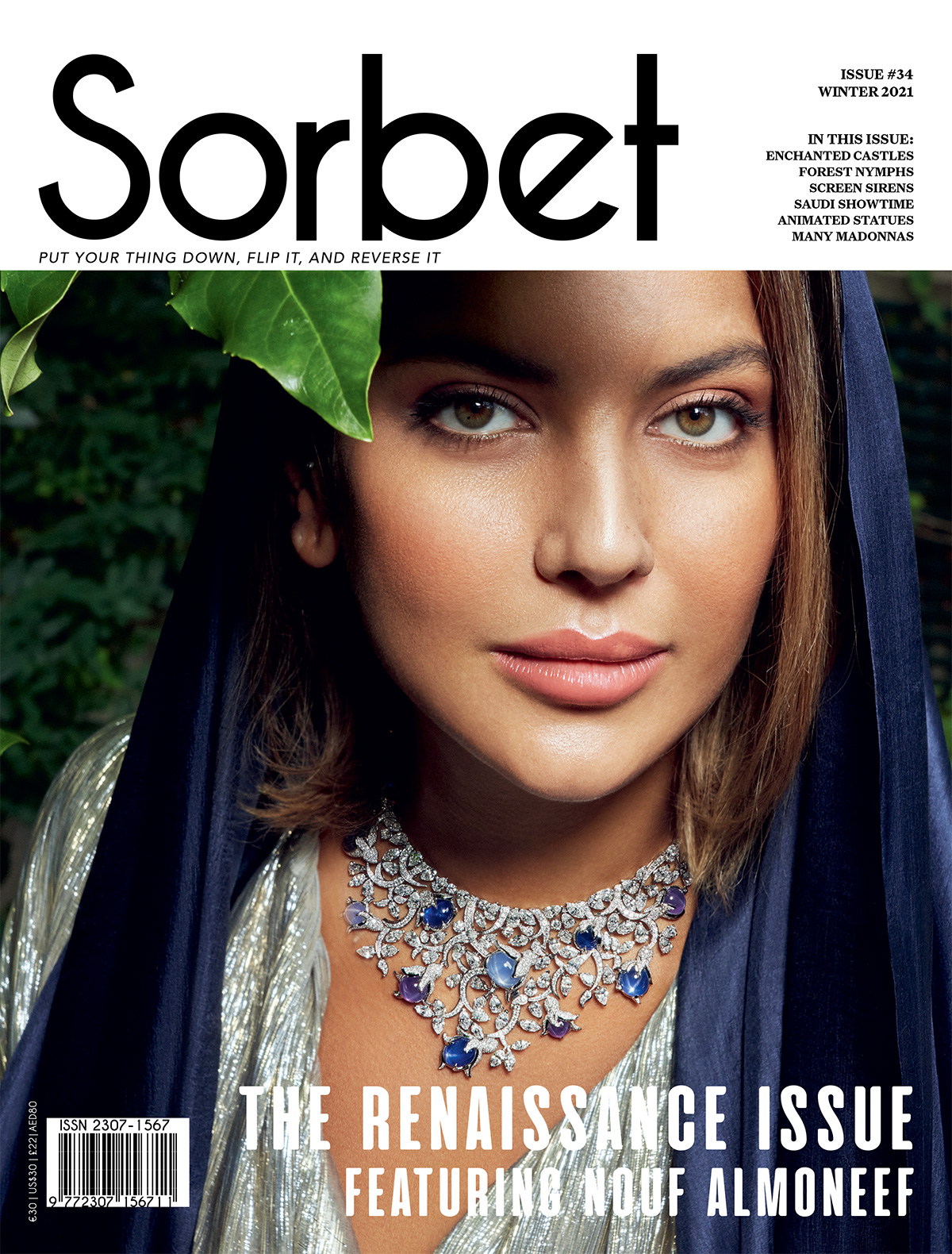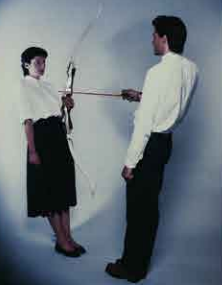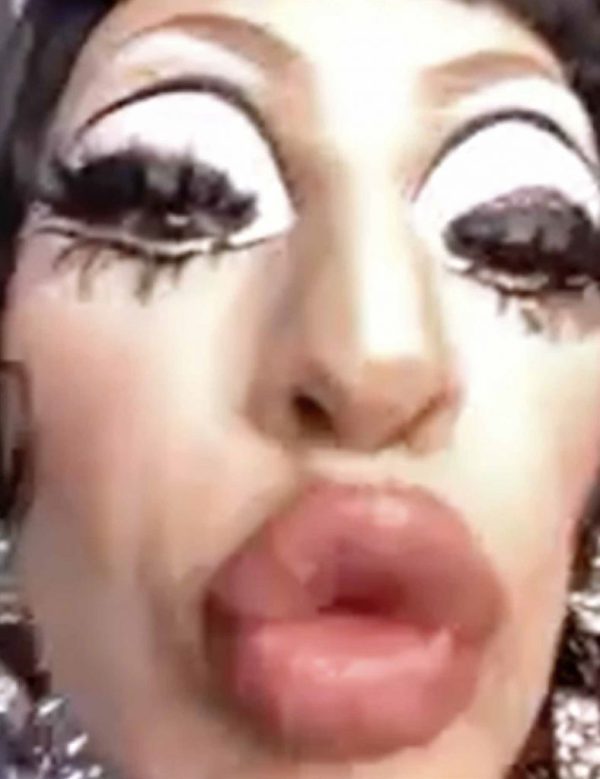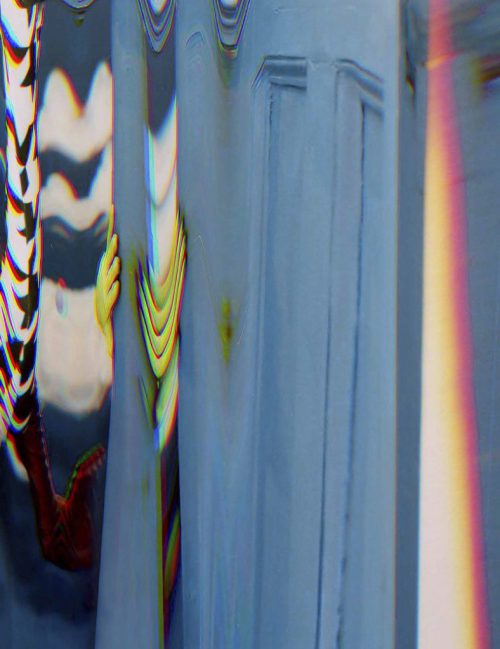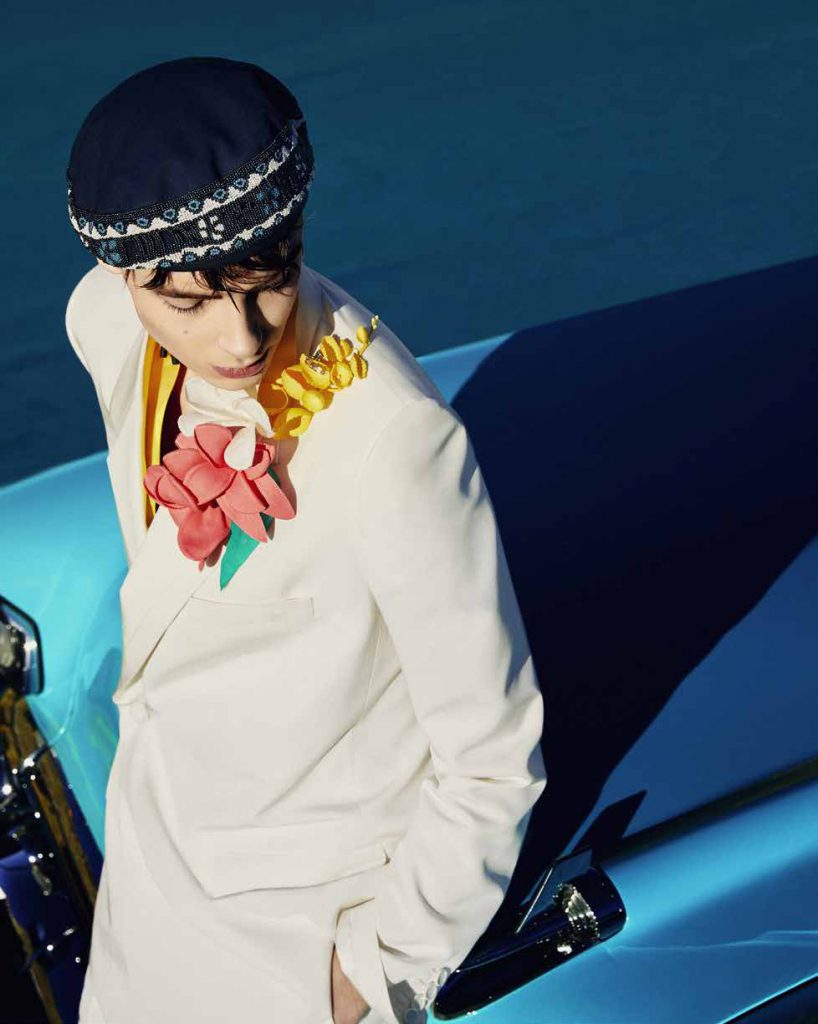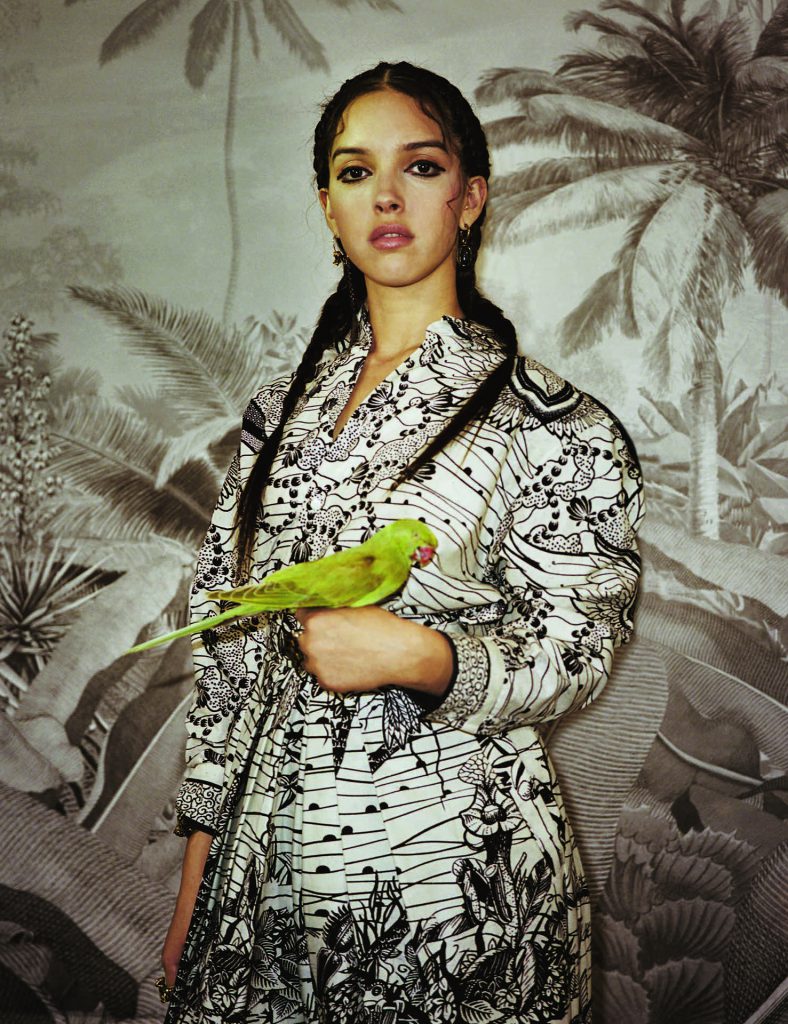
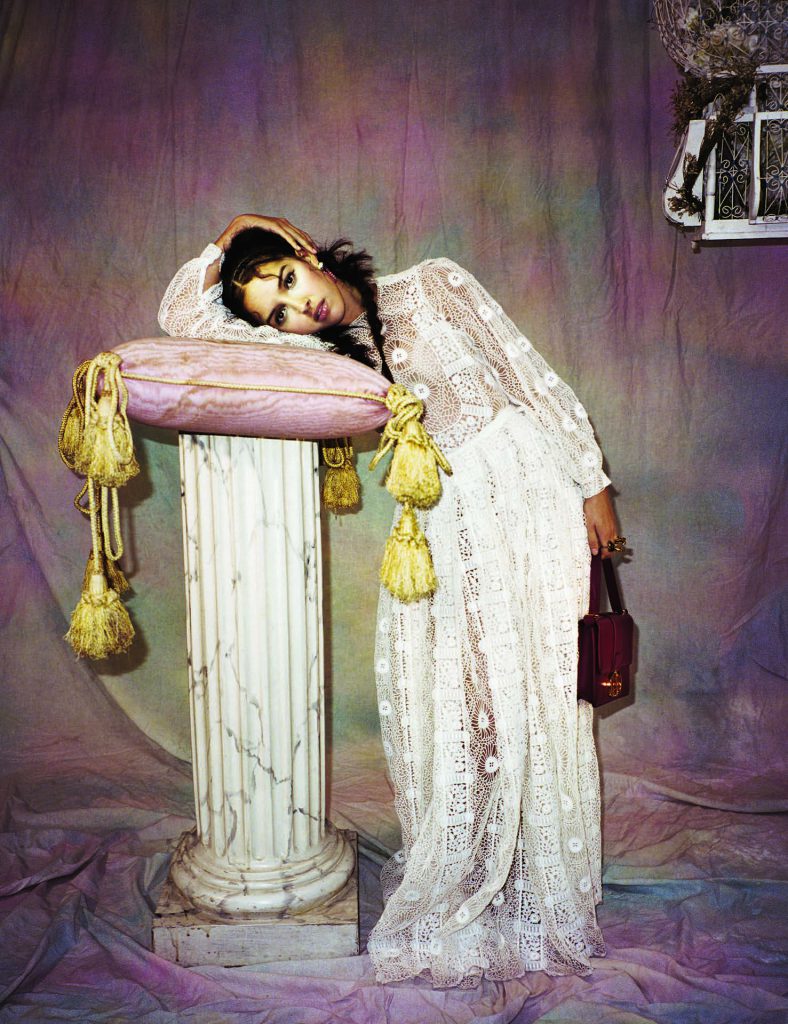
Q: Hi Lyna, so happy to catch you. Let’s start with a simple, cathartic question: who is Lyna Khoudri?
A: Wow, that’s a terribly tough one. I don’t know... she’s an actress?
Q: A 27-years-young actress, French- Algerian, from Aubervilliers, near Paris, and you’re killing it.
A: [Laughs] Exactly.
Q: How did you get into acting?
A: Well, honestly, I took drama as a minor in high school just to get extra points for the final diploma, the French baccalaureate. I didn’t want to become an actress at all. I graduated and completely forgot about acting and drama until I met a director who told me I should think about it again. I hadn’t done anything related to theater since high school. I decided to get back into it, so I enrolled in a Performing Arts Degree at college. I took more auditions – I probably auditioned for around 200 parts, so quite a lot – and I didn’t get one. I decided that I needed to learn more, so I applied for the National Theatre School in Strasbourg. I was accepted, and since then, everything’s been good. I just took the bull by the horns and made it happen.
Q: And after all that, is there any advice you’d give your younger self?
A: Have faith in yourself; be confident. I think that was my main problem – I was scared, I didn’t feel legitimate at all. But I think, ultimately, following my instincts and taking a break from castings to go back to school was exactly what I needed. I really wanted it and I just kept going. It was hard – you go through tons of rejection, loads of noes; you see a lot of people succeeding faster than you. But in the end, the main advice I’d give myself is to not be afraid; be focused and do it.
Q: What about your family? Did they support your acting ambitions?
A: At the beginning, they were not fully aware of everything I had in mind for myself. I told them that I wanted to become a thespian and do theatre, which was a bit more abstract and artistic. And when I finished my first movie, they realized. My mom was always a bit anxious about it all. I mean, it is a very uncertain and irregular profession. She might have wanted me to follow a more traditional path. But now that she sees me fulfilled and happy, she knows that’s the most important thing.
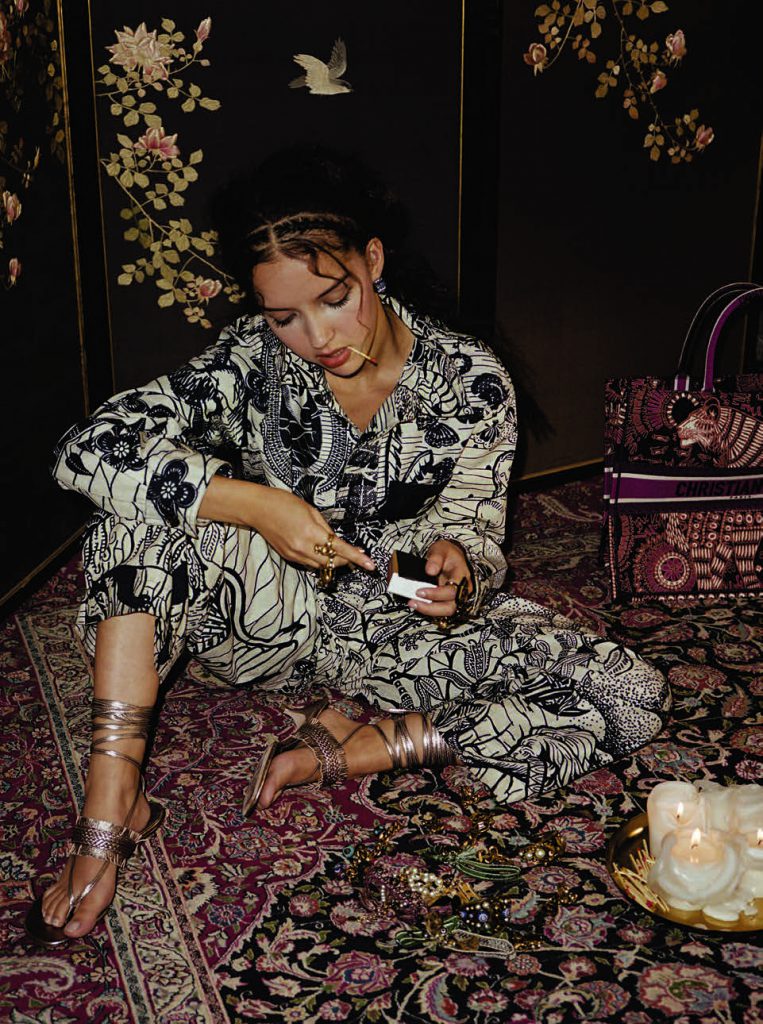
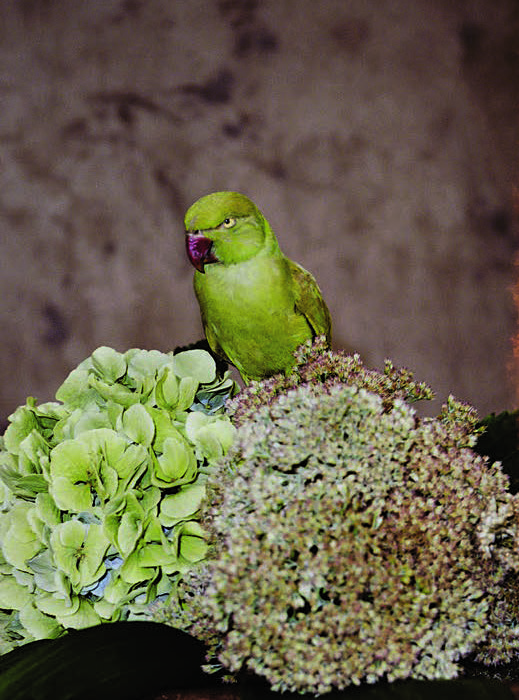
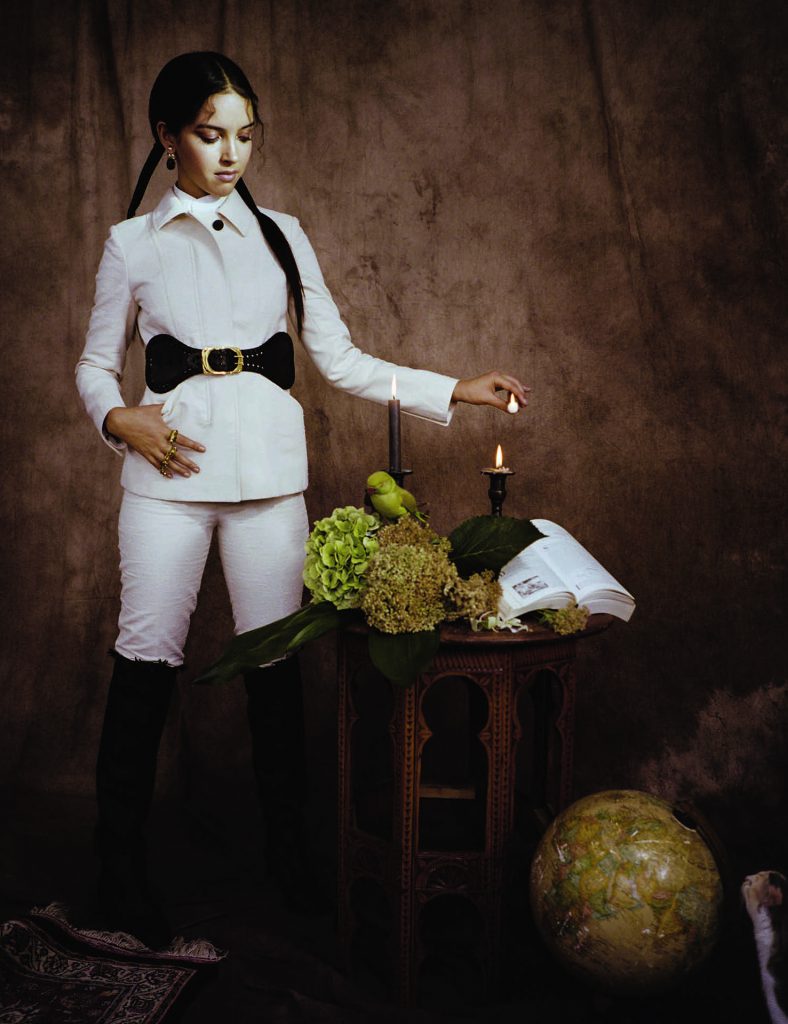
Q: But isn’t that every parent’s dream? You went back to get your degree and then went on practicing your art.
A: Absolutely. I think they were reassured, and recognised that I had it all under control. I did things this way because they raised me with strong values and always taught me to really study something before doing it. And that’s what I did. Essentially, I listened to them.
Q: If you weren’t acting, what would you do? Was there anything else you were passionate about?
A: One thing, but it requires a humongous amount of study – archeology. I always wanted to be an archaeologist, but I would need to go back to school for another 10 years. I also worked as a primary school supervisor for five years, and I love kids. Sometimes I find myself missing them and I worry that I need to refocus myself, put my feet back on the ground. Sometimes, when you’re an actor, you feel like you’re saving the world with your movies, but really, you’re not. Of course, it’s important – we’re culture creators – but sometimes I feel like I may have been more useful to society when I was working with kids, in my other life. I was helping them grow and it was pure happiness. So, if someday I ever do anything else, that might be just that.
Q: Has celebrity changed your everyday life?
A: Not really. Not yet. Except people have started to recognize me in the street now; they start speaking to me [laughs]. I mean, after they’ve seen the movie. But really, nothing major. All of my relatives, neighbors and friends know about my career, my movies, and they’re all very proud. I feel like it might have been more of a surprise for them. They would never have expected that the ‘girl next door’ would be an actress. I never really spoke about my acting except with my immediate family.
Q: Tell me about ‘Papicha’?
A: In Algeria, a papicha is a young woman who’s free and very girly, very feminine. It’s an Algerian expression used by young people in the streets of Algiers, like a cat call.
Q: And the movie is now pre-nominated for an Oscar, in the Best International Feature Film category. Proud?
A: That is absolutely crazy and amazing at the same time, but we’re also competing with 90 different movies. It is a very long list, but of course we’re very, very proud – the Oscars are like another world!
Q: What message or what feeling would you like the judges from the Academy to be left with – judges who probably aren’t very familiar with Algeria in the ‘90s?
A: What we tried to permeate all through the movie is our sincerity. Whether it is the selection committee of the Oscars or anyone else, we hope people will understand these women’s missions, struggles and hopes. And it’s not just the fight of a few women in Algeria in the ‘90s, 2020 it’s universal. What the movie is about is still relevant today, and the struggle we relate in the film still exists in so many different areas in the world. It’s not just a story. No one ever talks about Algeria in the ‘90s and what happened, and we don’t want people to forget. We tried to tell this story with sincerity – it’s our heart and guts. It’s not a story, it’s history.
Q: That narrative – Algeria in the ’90s and its civil war – is part of your family’s own story. Your dad was actively participating in the debate against the extremist parties.
A: Yes, my dad was a journalist on TV and received death threats because of his non-compliance with the ongoing situation. It’s not my story, it’s completely my parents’. I never lived it – I grew up in Paris. But I was always very aware of what happened. So this movie is kind of my homage to their fight. It’s their story.
Q: You’ve chosen quite a few very engaging roles, in ‘Papicha’ and in Sofia Djama’s ‘Les Bienheureux’ [The Blessed]. Is it a personal choice or is it luck? Did it just happen that you loved the directors and wanted parts in those movies?
A: Honestly, I didn’t choose the roles. I got them because I auditioned and got cast. When I auditioned for both movies, I was very lucky. I absolutely loved the scripts. But I’m yet not at a place where I can pick and choose. I’m lucky that every time a director has chosen me for a role, I’m passionate about it. I think that there are very few actors who have such a luxury. But I would never audition for a role that I didn’t believe in. I was so lucky to have my first part in ‘Les Bienheureux’, and to be able to work with such strong, independent women who actively fight for their beliefs.
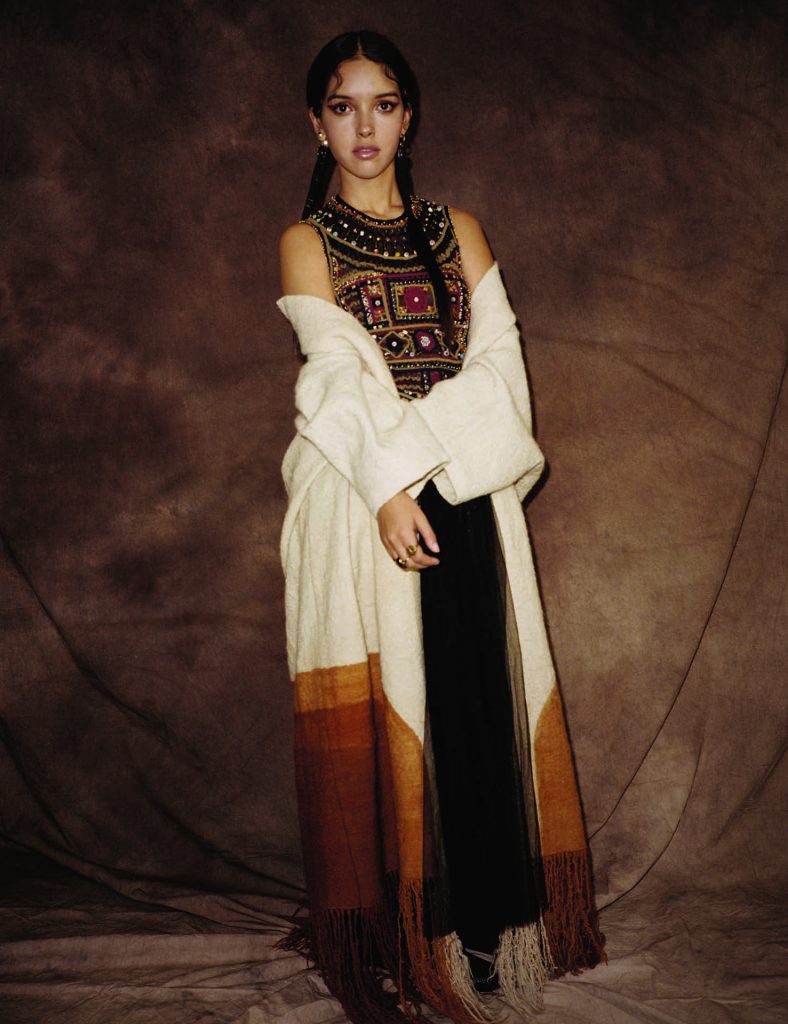
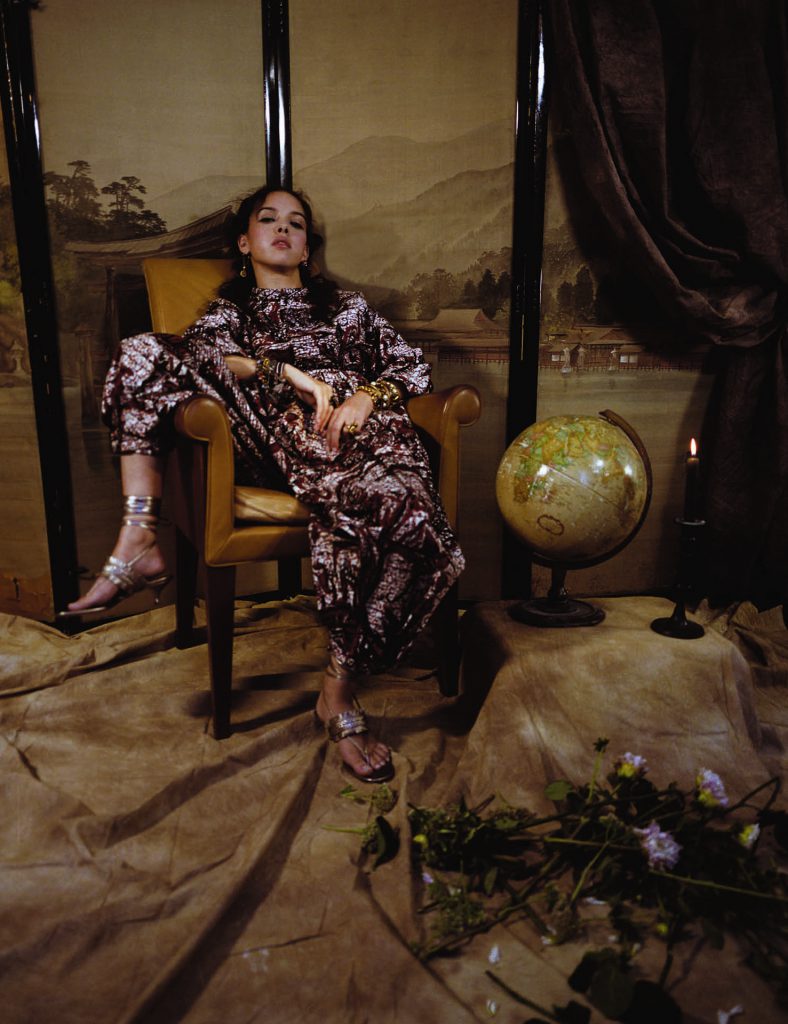
Q: You starred in Éric Toledano and Olivier Nakache’s movie ‘Hors Normes’ [The Specials] with actor Vincent Cassel – all esteemed veterans of French cinema. How does that feel?
A: I saw Vincent Cassel in ‘La Haine’ [from French director Mathieu Kassovitz] when I was young, and I went on to watch all of his movies. I have to admit, performing next to him was incredible. But Vincent is a very cool guy. And Olivier and Éric are like my big brothers – it’s just relationships that you create and hopefully maintain. I know that it could sound like a dream to work alongside them, but it becomes a reality. There’s a camera, you play the scene 50 times; it’s hard work. Sometimes you don’t really manage to deliver it perfectly, you get annoyed; it’s not all sunshine and glitter – it’s work. When I met Nakache and Toledano, we kind of clicked instantly. We love each other, and even today, we’re consistently messaging. We both admire and respect each other’s work and work ethic, and that’s it.
Q: You’ve been cast in Wes Anderson’s upcoming movie, ‘The French Dispatch’. How do you feel about that?
A: It is crazy. And it happened exactly like my other parts. I auditioned, it clicked with Wes, and let’s go...
Q: Let’s go to Hollywood...
A: [Laughs] I mean, it’s Hollywood in everyone else’s minds, but really it’s still a film set, just like shooting in Algiers with a script and your lines that you have to repeat 50 times. This one is different in the sense that when you arrive on set you find these huge Wes Anderson set designs. You’re basically in Wes’ head. But he’s also a very cool guy. You see him sat on his little chair – far away from the stereotype of the Hollywood director.
Q: What was the first thing you thought of or did when they announced you’d been cast in a Wes Anderson movie?
A: I was in Algeria, in the middle of the Sahara with very little cellphone reception. We were actually shooting a short, no-budget movie with friends – the kind of very last-minute thing you do with friends – and we were sleeping in tents. I was in the middle of a scene and I didn’t have time to really realize it. I had to go back and finish working. And it was insanely crazy. I didn’t believe it at first. And then everything starts and you have all of the meetings, and you’re a bit anxious, and you go for costume fittings, and you meet incredible people. Like the costume designer Milena Canonero, who alone has four Academy Awards for Best Costume Design and is one of the coolest and most chill women ever. She is really down to earth and would sometimes spill anecdotes on great actors she’s worked with, like Leonardo DiCaprio, as if they were not these consecrated Hollywood actors but just people she spent time creating an outfit for.
Q: So what does Hollywood mean to you? Is it a dream, a goal, or even a thought?
A: Honestly, it doesn’t mean anything to me. Right now, my most precious moment on set was in Algeria, for ‘Papicha’. It just was everything for me. It’s the story of my parents, it’s Algeria, it’s a country that lost a lot and suffered much, saw two wars, and was colonized for 130 years. I mean it’s incredible. If someone comes tomorrow and tells me “You’re shooting with Scorsese”, I’ll be obviously ecstatic with joy because I absolutely love him, but I don’t know if that would be as important to me as shooting a movie like ‘Papicha’... I mean, if Scorsese wants to shoot a movie in Algeria, that would be something else!
